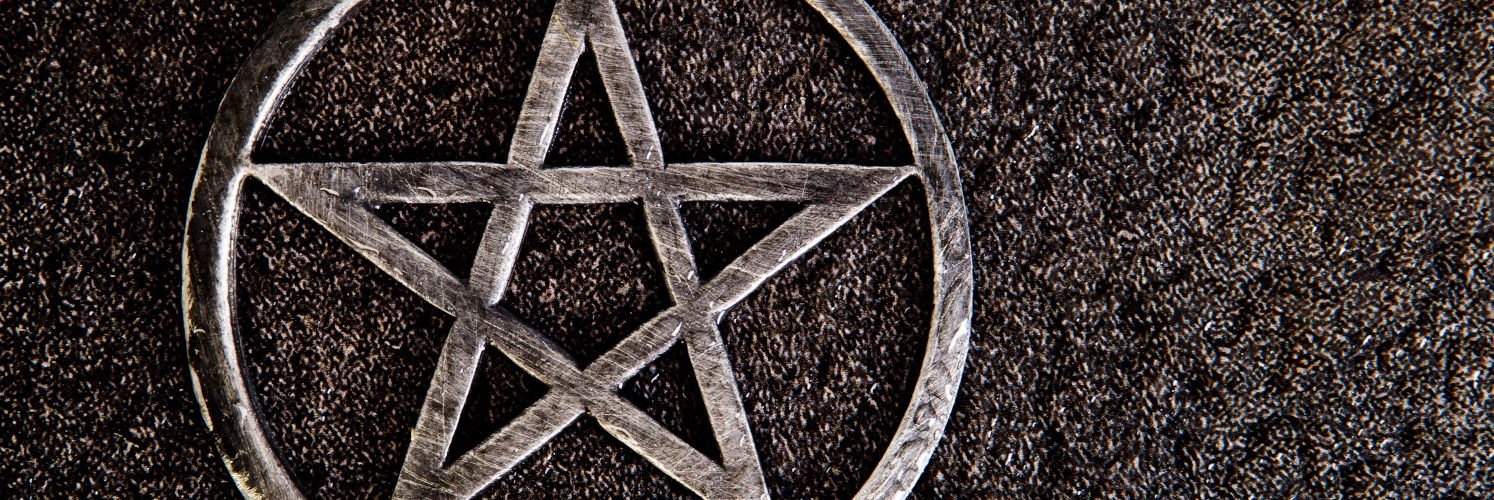So much of Wicca is bound up in the idea of fertility — fertility of the land, of the animals, and of humanity. As a religion, we understand this fertility to mean the ongoing survival of the planet and the life that lives on it, but often the first thing that comes to mind when someone mentions fertility is bodily fertility. Women’s mysteries are full of using the power of menstrual blood and celebrating the eventuality of pregnancy and birth. Likewise, men’s mysteries incorporate the power of life-giving semen. These mysteries are powerful and meaningful for most people — but not for all people. And it is important for Wicca to be inclusive of those whose biological fertility is lacking or those who do not wish to use that fertility to bring forth children. The natural infertility rate is about 15% of humanity, which is about the same number of left-handed people in the world. It is a common experience. It should not be ignored in our religion.
For me, infertility is a blessing. I am terrified to get pregnant again. My first pregnancy was unplanned. At the time, I was convinced that love would get us through. That turned out to not be the case, and I ended up giving up my daughter for adoption by my parents. I don’t regret that decision. Later, I would become pregnant again as a result of rape. That pregnancy ended in a quick and unrepentant abortion. But my financial circumstances haven’t improved from either of those experiences until now, and I am currently unpartnered, and a pregnancy would be disastrous to my life and health. When I was diagnosed with polycystic ovarian syndrome (PCOS), I was so relieved. I knew infertility was a common symptom of the disease. The pain in my ovaries meant that I was producing eggs but not releasing them, and as my periods became more and more irregular, I became more and more paranoid about whether or not I was pregnant. An IUD and a prescription for progesterone have saved not only my body but my mind from the weight of another pregnancy. And while I may fantasize about the perfect pregnancy with the perfect partner, the reality is, I don’t need to reproduce. My physical health is not robust enough to manage another pregnancy.
But my story is not the only story in Paganism. Some people long for children they can never have. Some people become pregnant only to suffer miscarriages or disastrous complications that result in an anguish-filled abortion. Those stories are just as important to Paganism as people who just don’t want to be pregnant. It’s important that Wicca as a religion addresses the full spectrum of the human experience as it relates to fertility.
Redefining Fertility
There is a movement in Wicca to redefine fertility as a concept. In the early years, Wicca was very bound up in the idea of physical fertility and sexual intercourse as a sympathetic magick that influenced the fecundity and abundance of the land. It’s a concept with ancient roots and shouldn’t be ignored. There are people who find it meaningful. But over time the idea of fertility has expanded into a concept that encompasses any creative act, anything that is built up from a tiny spark of inspiration into a roaring bonfire of accomplishment. This concept of fertility is often referred to in a feminine-coded way, using words like ‘mothering’ and ‘nurturing’, which can exclude masculine- or nonbinary-identified people. So it’s important, as we continue to expand the concept of fertility in Wicca, to encompass the whole of the human experience. Listening to and incorporating the ideas of a wide variety of practitioners will go a long way toward creating an inclusive Wicca for the 21st Century and beyond.
Addressing Infertility
Physical infertility is intensely personal. Whether female-bodied or male-bodied, the realization that you are physically infertile can be a blessing or a curse. It can be a source of relief or a source of despair. Some people long to be parents to their own biological child, and when they realize they cannot be, they feel cut off from the Circle of Life and from the fertile energy of Deity and the planet. They may question why they weren’t deemed ‘good enough’ to reproduce. They may blame themselves for not being able to achieve fertility through force of will or medical intervention. They may experience crises of faith as a result.
These experiences are valid and these voices are important to the discussion of fertility in Wicca. In the traditional first- degree initiation ritual, the soon-to-be witch is blessed with the Fivefold Kiss, which incorporates a blessing of the generative organs, “without which we would not be.” For those struggling with infertility, this can feel like a slap in the face. For those whose infertility is a blessing, this can feel like a threat. In either case, the notion is brought forth that the initiate is cut off in some way from the vast mysteries of the Cosmos because their reproductive organs don’t function like that of the Goddess or the God. Our aim in addressing infertility must be to heal that feeling of isolation from the creative energies of the universe, to allow space for grief and mourning, and to create a means by which infertile people can leave a legacy for future generations if they so choose.
The easiest way to address this is simply to ask whether a fertility blessing such as the Fivefold Kiss would be unwanted by or uncomfortable to the recipient and not performing it if it is unwelcome. Another way would be to amend the blessing to say “which brings forth pleasure and intimacy,” leaving out any reference to the reproductive aspect of sexuality. However, this can be alienating to those who do not feel sexual attraction. An alternative blessing might be “blessed be thy center, around which thy power flows” or something similar, referring to the energy center situated at the center of a person’s gravity. The exact way of dealing with the situation will depend on the person, and they should be involved in discussions leading up to such ritual acts.
More Than One Way to Be — or Not Be — A Parent
Pagans are, by and large, working-class and poor people. As such, in-vitro fertilization and surrogacy may be avenues that are unavailable to Wiccans struggling with infertility. Similarly, adoption may be out of reach for people due to financial issues or lifestyle reasons. Queer people, BDSM practitioners, and counterculturists are marginalized by the foster and adoption systems, so these means of parenthood may be out of reach for them.
Just as important to the Pagan community are those people who don’t want to be parents — who may like kids, or may not, or may only have patience for them for a little while. The children are our future and should be nurtured and protected and taught, but the path of direct and primary care for children is not for all people. Whether by chance or by choice, some people aren’t going to be parents. And that’s okay.
So what meaningful role can those with infertility play in the Craft? The answer is simple: any role they choose. Those who feel called to work with children may be children’s circle leaders or scout troop leaders. They may work with a mentoring program in the community. They may run peer support groups for infertility and build up the Mysteries surrounding these experiences. Those who are happily childfree may choose to focus their energies on community-building projects or creating art or running a business. They may volunteer their professional services to the community. They may be the next Big Name Pagan. The sky is the limit, and it has both nothing and everything to do with a quirk of biology. Accepting and embracing infertility for what it is, through ritual and community support, is an important aspect of our religion as we expand to encompass all people who wish to practice the Craft.

